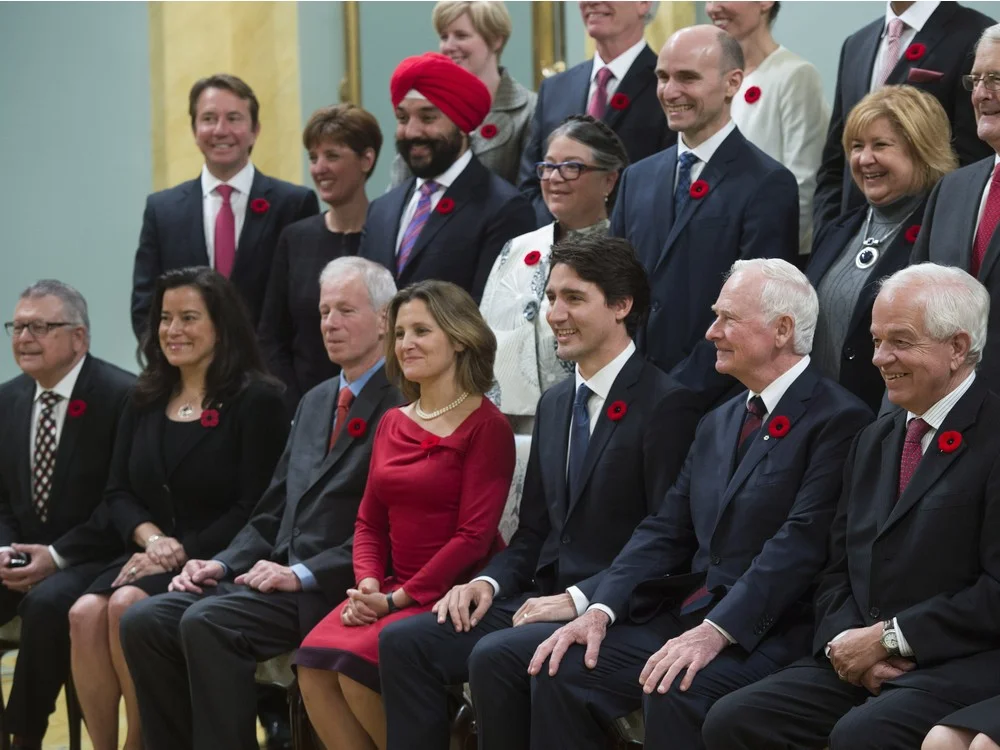SNC-Lavalin Scandal Dims Trudeau’s Re-Election Chances By Phillip Howard
Electoral prospects for Prime Minister Justin Trudeau’s Liberal Party have dimmed in the wake of a recent scandal with SNC-Lavalin, a major construction company who employs 9,000 Canadians. Liberals now trail the Conservative Party by two points, 36 percent to 34 percent.
Two cabinet members have resigned. Judy Wilson-Raybould, the former Attorney General and veteran’s affairs minister, stepped down amid claims she was pressured by government officials to ask for leniency for SNC-Lavalin, a company accused of bribing former executives to secure contracts in Libya. If convicted, SNC-Lavalin, would be prohibited from receiving federal government business for 10 years.
Photo by Elizabeth McSheffrey/Canada’s National Observer
Wilson-Raybould was joined by Jane Philpott, the former Treasury Board President. Lori Turnbull, Director of the School Public Administration at Dalhousie University, believed Philpott’s resignation was “nothing short of catastrophic for the government.” This was echoed by Lori Williams, Associate Professor Economics, Justice, and Policy Studies at Mount Royal University, who believed Philpott’s “principled resignation” deal a “significant blow” to Trudeau, given “she was one of the government’s most effective advocates.”
“It grieves me to resign from a portfolio where I was at work to deliver an important mandate. I must abide by my core values, my ethical responsibilities, constitutional obligations. There can be a cost to acting on one’s principles, but there is a bigger cost to abandoning them. ”
Trudeau denied reports of government interference and expressed confusion over Wilson-Raybould’s resignation. Wilson-Raybould has not spoken publicly about why she resigned, but separately testified that Trudeau and other senior officials pushed for SNC-Lavalin to pay reparations and avoid a trial, though she did not believe this was illegal.
The Independent Conflict of Interest and Ethics Commissioner is investigating the matter, following a request from New Democrat MPs, an opposition party to the ruling government. Trudeau welcomed the investigation and said the government fulfilled “the clear public standards expected of it” in dealing with SNC-Lavalin.
Photo by Ottawa Citizen
Trudeau retained support from the rest of his cabinet, but having “two influential and well-regarded women” leaving “in the name of broad principles such as the rule of law” is not good, particularly during election year, explained Daniel Beland, Professor of Political Science and Director of the McGill Institute for the Study of Canada.
Trudeau has damaged his family’s legacy- his father was Prime Minister from 1968 to 1979 –and undermined his 2015 campaign theme of changing Canadian politics, but does not appear inclined to resign, nor does it seem likely that Liberals will seek to oust him. Most Liberals still view Trudeau as their best chance to win the election and could defend his motives (saving jobs) as worthwhile.
Phillip Howard is a graduate student at Utica College







